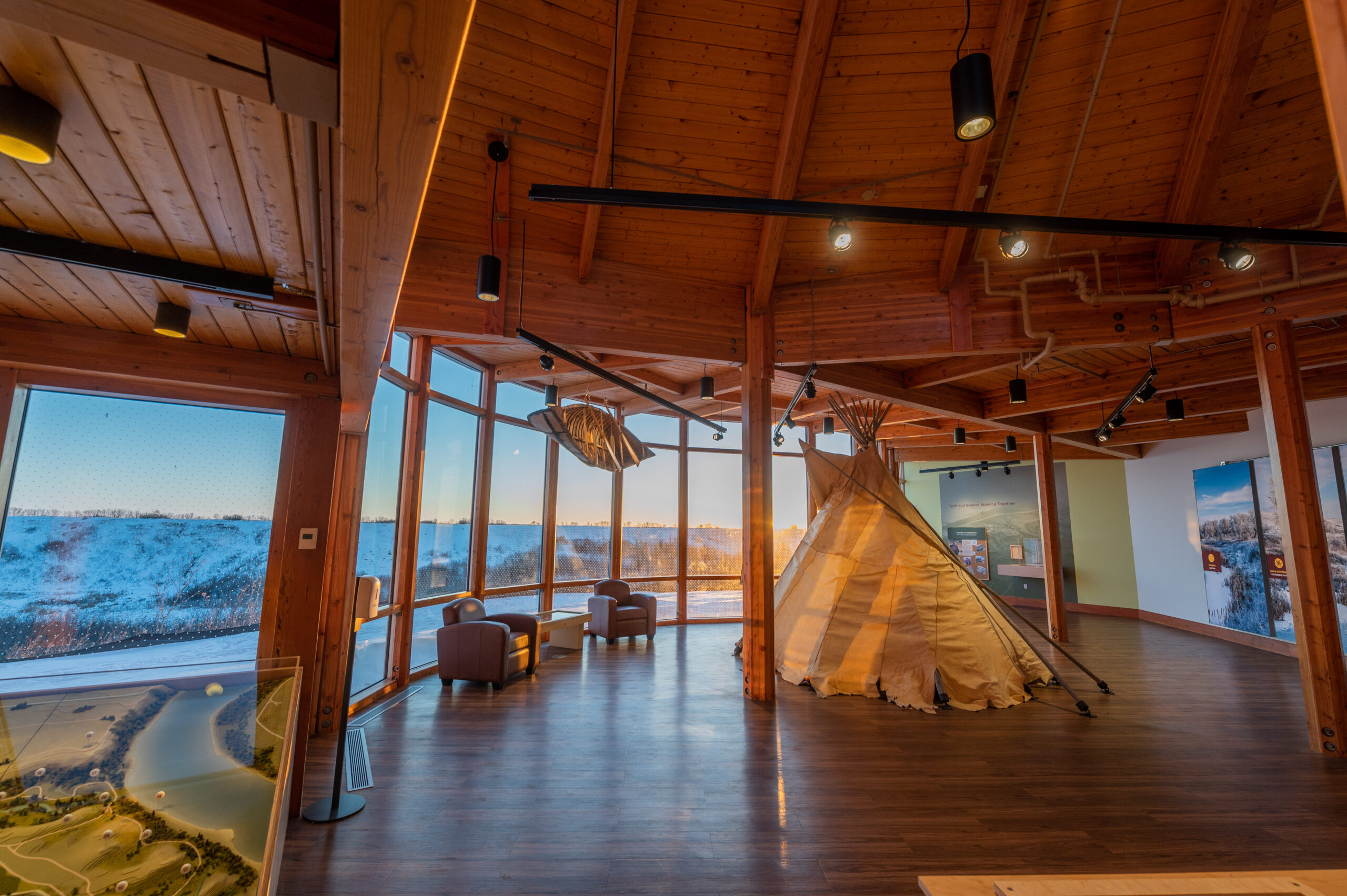
Photo courtesy of Wanuskewin Heritage Park.
Indigenous people and parks and recreation in Canada have a complicated history.
When National Parks were established in the 1800s across Canada, they were founded by displacing Indigenous people from their traditional lands. This displacement and loss of their traditional land makes reconciliation with Indigenous peoples a difficult prospect for the parks and recreation industry.
While neither parks or recreation are named specifically in the Truth and Reconciliation Commission of Canada’s 94 Calls to Action, Wanuskewin Heritage Park recognizes their role towards reconciliation and is taking action.
“I think that the recreation that we do offer here at the park are all opportunities for learning,” said Andrew McDonald, Director of Marketing and Communications at Wanuskewin.
When it comes to training and educating future employees within the recreation industry, Wanuskewin is taking on a key role.
Through a partnership with Saskatchewan Polytechnic’s recreation and tourism management program, Wanuskewin hosts a weekly course at the park where students participate in land-based learning activities to gain a further understanding of cultural awareness and appreciation.
“That is our mandate here. Part of our mission is to grow appreciation for Northern Plains Indigenous cultures,” said McDonald.
Educating graduates and future recreation professionals is one area where McDonald believes the land-based learning offered at a park like Wanuskewin can go a long way toward decolonizing ways of thinking.
Land-based learning, McDonald says, is “far more impactful if you are actively doing so if you are out in the land. Your hands are busy, and it just makes the lessons that you are learning that much more memorable. It makes you an active participant really, as opposed to being passively lectured to. You are taking an active role,” said McDonald.
Darlene Brander, Chief Executive Officer of Wanuskewin, is proud of the work done by the park and the steps taken toward reconciliation.
“I think that through the programming that we have been providing, we'll be creating and then activating, we are more than happy to share our model and our strategies with the greater community,” said Brander.
James Daschuk, an Associate Professor in Kinesiology and Health Studies at the University of Regina, believes that when it comes to the parks and recreation industry as a whole – cultural awareness training is essential toward better relationships.
Daschuk pointed toward the work being done by John Lagimodiere and Winston McLean, who provide education through ACS Aboriginal Consulting Services, as well as a certificate called the 4 Seasons of Reconciliation, a 3-hour online course offered through the First Nations University of Canada.
Lagimodiere has been engaged with the parks and recreation industry to provide education to organizations like the Saskatchewan Parks and Recreation Association and the Sport, Culture and Recreation Districts, among others.
While education is imperative, Daschuk emphasizes the importance of a representative workforce. The drive for reconciliation when it comes to parks and recreation, must start with hiring and training more Indigenous staff.
“Having employees who look like the visitors you’re going to attract,” said Daschuk.
Daschuk believes parks and recreation sites like Wanuskewin, which is striving toward being designated as Saskatchewan’s first UNESCO World Heritage, can go a long way towards education.
“It is a site with 6,000 years of occupation. What if a tourist who came here with no background of our history and they go to Wanuskewin, they get to experience the awesome nature of Indigenous society in its original meaning,” said Daschuk.
“That’s a place where Indigenous people will go – it’s their place and it’s celebrating their culture – but it’s also a place for non-Indigenous people to learn.”
For most of the Parks and Recreation Industry, a rightful focus is being placed on recognizing and understanding the truth of Indigenous history in Canada. With leaders like Wanuskewin here in Saskatchewan, we do not need to look far to uncover ideas and actions that parks and recreation organizations can use to foster and inspire reconciliation in their own communities.
For More Information on Truth and Reconciliation:
National Centre for Truth and Reconciliation -
https://nctr.ca
Office of the Treaty Commissioner -
http://www.otc.ca
John Lagimodiere, Aboriginal Consulting Services -
https://aboriginalconsultingservices.com/about.php
Wanuskewin Heritage Park -
https://wanuskewin.com



